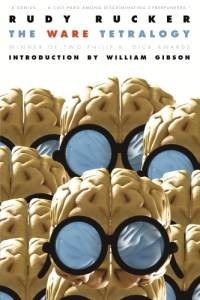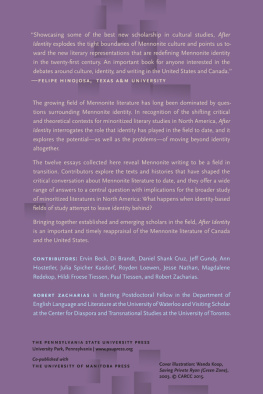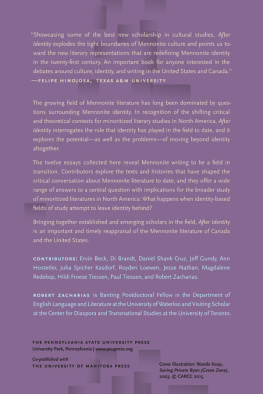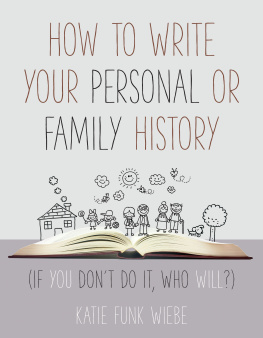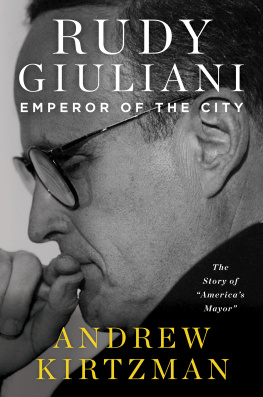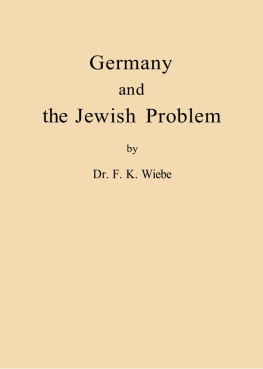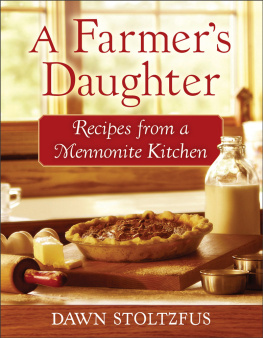Rudy Wiebe - Peace Shall Destroy Many
Here you can read online Rudy Wiebe - Peace Shall Destroy Many full text of the book (entire story) in english for free. Download pdf and epub, get meaning, cover and reviews about this ebook. City: Toronto, year: 2001, publisher: Vintage Canada, genre: Art. Description of the work, (preface) as well as reviews are available. Best literature library LitArk.com created for fans of good reading and offers a wide selection of genres:
Romance novel
Science fiction
Adventure
Detective
Science
History
Home and family
Prose
Art
Politics
Computer
Non-fiction
Religion
Business
Children
Humor
Choose a favorite category and find really read worthwhile books. Enjoy immersion in the world of imagination, feel the emotions of the characters or learn something new for yourself, make an fascinating discovery.

- Book:Peace Shall Destroy Many
- Author:
- Publisher:Vintage Canada
- Genre:
- Year:2001
- City:Toronto
- Rating:5 / 5
- Favourites:Add to favourites
- Your mark:
- 100
- 1
- 2
- 3
- 4
- 5
Peace Shall Destroy Many: summary, description and annotation
We offer to read an annotation, description, summary or preface (depends on what the author of the book "Peace Shall Destroy Many" wrote himself). If you haven't found the necessary information about the book — write in the comments, we will try to find it.
Peace Shall Destroy Many — read online for free the complete book (whole text) full work
Below is the text of the book, divided by pages. System saving the place of the last page read, allows you to conveniently read the book "Peace Shall Destroy Many" online for free, without having to search again every time where you left off. Put a bookmark, and you can go to the page where you finished reading at any time.
Font size:
Interval:
Bookmark:
BY RUDY WIEBE
FICTION
Peace Shall Destroy Many (1962)
First and Vital Candle (1966)
The Blue Mountains of China (1970)
The Temptations of Big Bear (1973)
Where Is the Voice Coming From? (1974)
The Scorched-Wood People (1977)
Alberta/A Celebration (1979)
The Mad Trapper (1980)
The Angel of the Tar Sands (1982)
My Lovely Enemy (1983)
Chinook Christmas (1992)
A Discovery of Strangers (1994)
River of Stone: Fictions and Memories (1995)
Sweeter Than All the World (2001)
NON-FICTION
A Voice in the Land (ed. by W. J. Keith) (1981)
War in the West: Voices of the 1885 Rebellion (with Bob Beal) (1985)
Playing Dead: A Contemplation Concerning the Arctic (1989)
Stolen Life: The Journey of a Cree Woman (with Yvonne Johnson) (1998)
DRAMA
Far as the Eye Can See (with Theatre Passe Muraille) (1977)
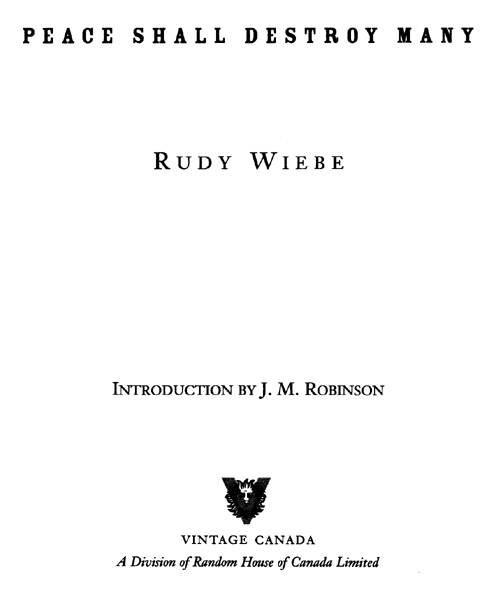
VINTAGE CANADA EDITION, 2001
Copyright 1962 by Rudy Henry Wiebe
Introduction 1972 by McClelland & Stewart Limited
Afterword 2001 by Jackpine House Ltd.
All rights reserved under International and Pan-American Copyright Conventions. Published by Vintage Canada, a division of Random House of Canada Limited, in 2001. First published in Canada by McClelland & Stewart in 1962. Distributed by Random House of Canada Limited, Toronto.
Vintage Canada and colophon are registered trademarks
of Random House of Canada Limited.
N ATIONAL L IBRARY OF C ANADA C ATALOGUING IN P UBLICATION D ATA
Wiebe, Rudy, 1934
Peace shall destroy many
eISBN: 978-0-307-36620-7
I. Title.
PS8545.I38P2 2001 C813.54 C2001-901550-X
www.randomhouse.ca
v3.1
T O THE S CATTERED M EMBERS OF
The Coffee Club
T HE A NABAPTISTS OF THE SIXTEENTH century were the extreme evangelical wing of the Reformation movement. The name Mennonite was early attached to them, after Menno Simons, their sole early theological leader to survive persecution. Because the groups literal biblicism expressed itself in believers baptism, a life of discipleship, separation of church and state, non-participation in war or government, the Brethren, as they preferred to call themselves, were savagely martyred by Catholic and Protestant alike. Restrained from open proselytizing, they could do no more than teach their faith to their children; what in 1523 began as a religious movement became in time a swarming of a particular people from various nationalities bound together by a faith: like ancient Israel, they were a religious nation without a country. They were driven from Switzerland to America, from Holland and northern Germany to Prussia, then Russia, finally to North and South America. Wherever they went they carried peculiar customs, a peculiar language, a peculiar faith in the literal meaning of the Bible.
Over the four hundred years of their existence, the Mennonites have divided into several fairly distinctive groups. Their extremely individualistic approach to religion could hardly have other results. In one form or another, they still hold essentially the principles which forced Conrad Grebel and his companions to part with the reform of Zwingli in Zurich.
The Mennonites portrayed in this book belong to no particular faction; they could belong to any one of several groups that came to Canada from Russia in the 1920s. All characters and situations are fictional.
And in the latter time, a king
shall stand up.
And his power shall he mighty
and he shall prosper
And he shall magnify himself in his heart,
and by peace shall destroy many:
But he shall be broken without hand.
D ANIEL 8
T HE SETTING OF R UDY W IEBES first novel, Peace Shall Destroy Many, is a community which has cut itself off from the world to follow in the steps of Christ. The scene is the wilds of Saskatchewan, and the year is 1944. The outside world seems to be the source of evil, its tank tracks desecrating the earth which here is rightly turned by the plow, its war planes overhead tearing the serene sounds of a farmyard at evening. But the story told is of the inner strains that threaten this community and of the awakening of one of its sons to the need for a new way. The first view of Thom Wiens is of him plowing, following the traditional path of the fathers; the final view shows him driving, reins in hand, seemingly (in the mind of one of the characters) towards the brightest star in the east. Left behind, broken, is the former leader, Peter Block.
) Moments before he beats the Bashkir to death, the thought of his son without milk feeds his fury.
).
). It is characteristic of him in coping with evil to focus on the external situation. Mrs. Wiens suggests that the evil within must be experienced to a degree if it is to be mastered. Block seeks to protect by limiting awareness. Too simple or rigid a concept of evil and how to cope with it can yield an ironical harvest, the novel seems to suggest.
The other major character through whom the author explores the life of the community is Thom Wiens, the youthful protagonist of the novel. Thom, starting guiltily in the first scene at his pause from work, begins orthodox; since the coming of Joseph the teacher, however, doubts have jolted his mind like the stones impede his plow. As the story progresses, he comes, through a series of moments of seeing, to question his communitys expression of its belief.
).
The meeting scene is explicit in stating its issues. A more satisfying moment portraying Thoms awakening is the scene in which he stumbles over the skull of a wood-buffalo and pulls it up moss and roots dangling (see ), more satisfying because more subtle and because to an extent the reader has to see for himself. Pulling up the skull, Thom is arrested by a sense of the past, and he gains in a flash a new consciousness of this country, Canada, which his community ignores, and of the dignity and mystery of its native people, the Indians, who have a history of their own. Pete scoffs at Thoms moment of humility and wonder, and Thom is further isolated. The dwindling of the friendship of the two young men is a measure of Thoms development. This episode along with others of similar effects, his glimpse of Two Poles at the picnic, for example, enlarges Thoms awareness of what lies beyond his communitys limits and plays its part in altering his relation to the community.
). But he is uncomprehending before the massive human emotions, childish. The juxtaposition of the great event and the local preoccupation in this scene and the kind of response Thom makes to each provides one perspective on the effects of withdrawal.
) in his subconscious. He is capable of confronting the self within. Later he realizes that at the Bible class he gives for the Indian and Mtis children, he is avoiding one of the girls who appears ready to make a commitment. He does not really want to convert the child; he prefers to evade the problems she would create in a community ordered the way his is. Contradictions of this order lead Thom to a crisis; for him the choice seems to be one of following tradition or following Christ. Ironically, the community has become the world which he must overcome. He is brought, however, when he learns what happened to Elizabeth, to yet another land of crisis.
) from that vantage point. Not until later, however, does he really see from the perspective of Elizabeths grave, when he learns how she died. Then he reacts in horror against Block and his rules. His faith itself trembles; he breaks with his principles he decides to leave and go to war. Here, then, is one possible ending of the story, Thoms quest bringing him to this point of rupture. In fact, this is not his final position.
Font size:
Interval:
Bookmark:
Similar books «Peace Shall Destroy Many»
Look at similar books to Peace Shall Destroy Many. We have selected literature similar in name and meaning in the hope of providing readers with more options to find new, interesting, not yet read works.
Discussion, reviews of the book Peace Shall Destroy Many and just readers' own opinions. Leave your comments, write what you think about the work, its meaning or the main characters. Specify what exactly you liked and what you didn't like, and why you think so.

